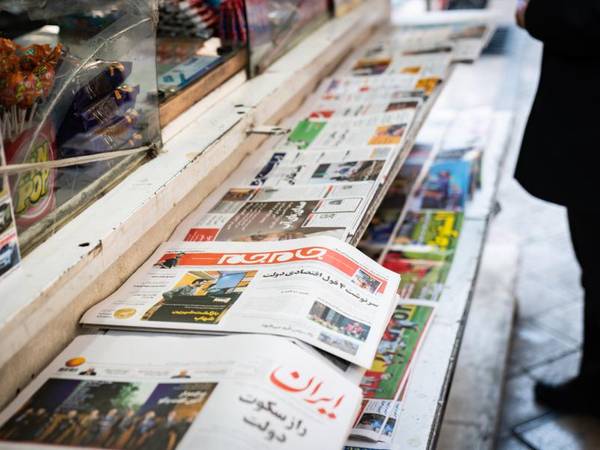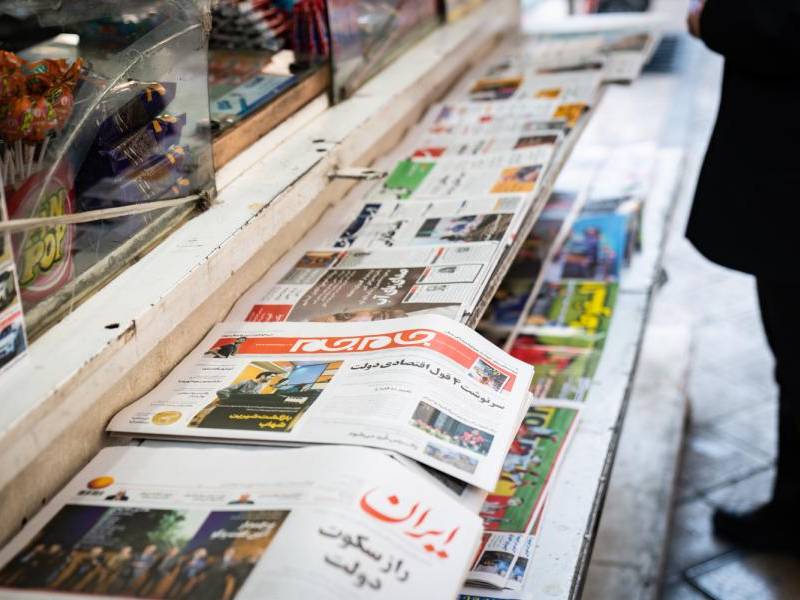Following an alleged operation by Israel on Friday on targets in Esfahan, local media fears the fallout of the ongoing tit for tat attacks between Israel and Iran will have severe outcomes for the Iranian people.
In an editorial for Setareh-e Sobh newspaper on Saturday, Ali Saleh Abadi criticized the regime for the “incorrect assessment of the consequences of their actions for the economy and people’s daily lives.”
He wrote, “Any form of conflict, including verbal threats, has a detrimental effect on the economy,” he continued. “We need to ask why Arab countries that went to war with Israel before are now defending it against Iran’s attack.”
The Iranian attack on Israel last weekend involved over 350 missiles and drones, almost all of which were intercepted by Israel and a US-led coalition of allies. In contrast, the operation on Friday involved three missiles fired by fighter aircraft outside of Iran, according to a senior US official speaking with ABC News.
Although Israel has not claimed responsibility for the attack, ABC News and CNN, citing US officials, have attributed it to Israel. According to the former, the air defense radar site in Isfahan was the target of the attacks.
Isfahan is a critical province due to its military bases, and the underground Natanz enrichment facility, which suspected Israeli sabotage attacks have repeatedly targeted.
In Tehran's leading reformist daily Etemad, former minister and long-time intelligence official Ali Rabiei wrote that Israel has not responded proportionally to Iran's barrage of missiles and drones while they seek an international coalition against Tehran with potentially harsh consequences.
Iran claims the bombardment was an act of self-defense after Israel allegedly conducted an air strike on the Iranian consulate compound in Damascus, killing one of the most senior Quds Force commanders and multiple IRGC personnel earlier this month.
In the same paper, Mostafa Zahrani, a former director general of strategic affairs in the foreign ministry, said the new strategy of IRGC’s direct conflict with Israel would "escalate war rather than [act as] deterrence."
In his view, the use of Iran's proxies across the region offers a more effective deterrent than direct conflict against Israel, Zahrani adding that while things are at present relatively calm, “there is a possibility that miscalculations by both sides could result in war.”
In Saturday's Jahan Sanat, Nader Karimi challenged the Iranian authorities' claim of robust defense systems by asking, “Why are these anti-aircraft systems waiting until the micro-birds are flying inside the country and over the nuclear facilities to strike them? They should have been spotted long before by radars. This is not in accordance with the stated security and deterrence strategies." He warned the conflict "will not end soon".
Last week, legal proceedings were brought against Jahan Sanat newspaper, accusing it of "compromising national security" for its coverage of Saturday's operation against Israel. It is the latest legal action to be taken against publications and journalists amidst ongoing crackdowns.
Shargh Daily, a reformist and relatively independent newspaper, speculated if news of the EU and US “yielding to Israeli demands” for tougher sanctions and the Friday attack on Iranian soil signals and ending of the current crisis between the two archenemies.
An ex-parliament member claimed that if Israel was behind the latest attack, “it was a controlled operation that was not intended to provoke international reactions” as powers such as the US call for calm following last weekend's aerial bombardment.
“Sanctions alone are not enough, and Israel had to attack because of balancing geopolitical equations,” Mohammad Javad Jamali Nobandegani said, adding that further Israeli attacks cannot be ruled out.

